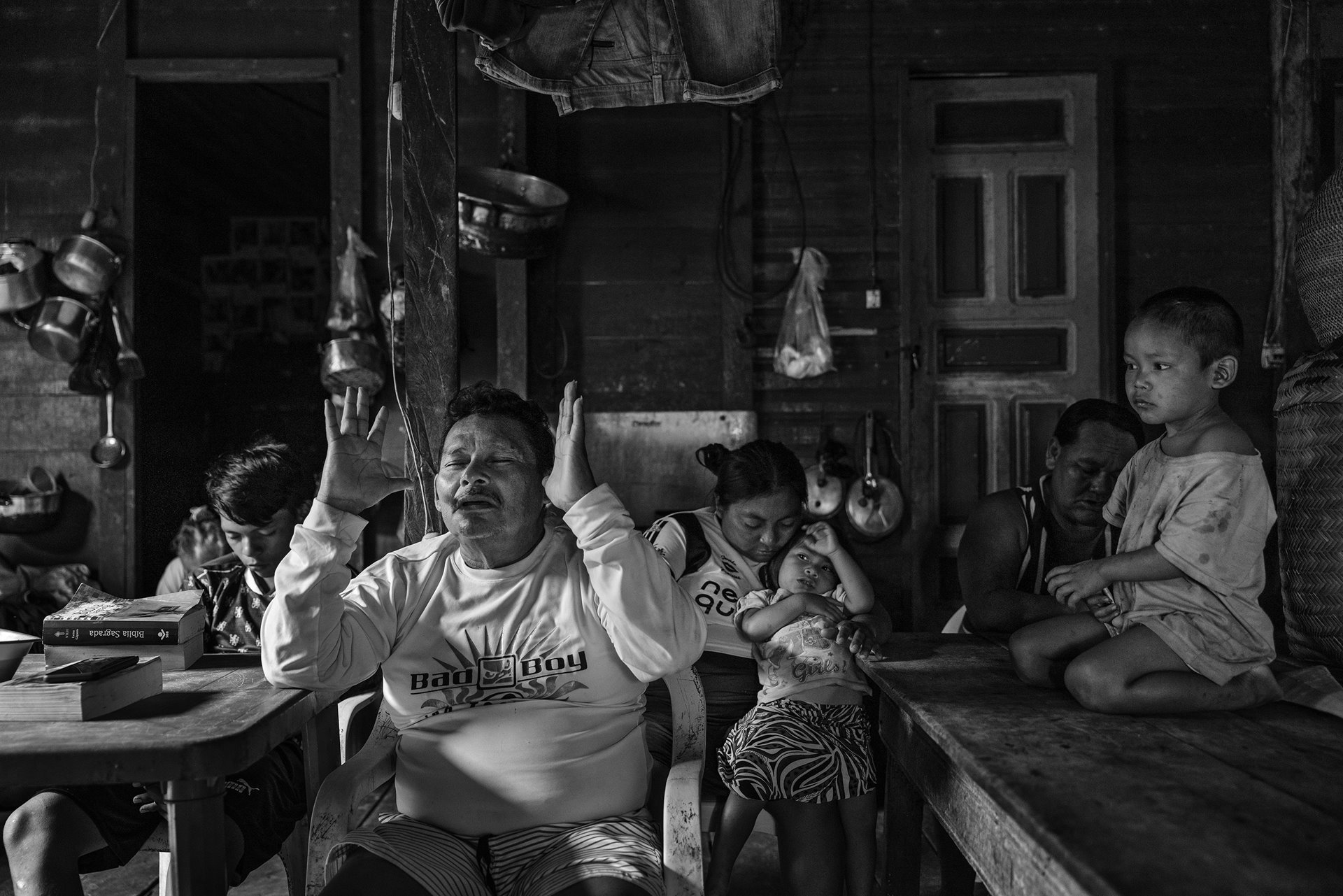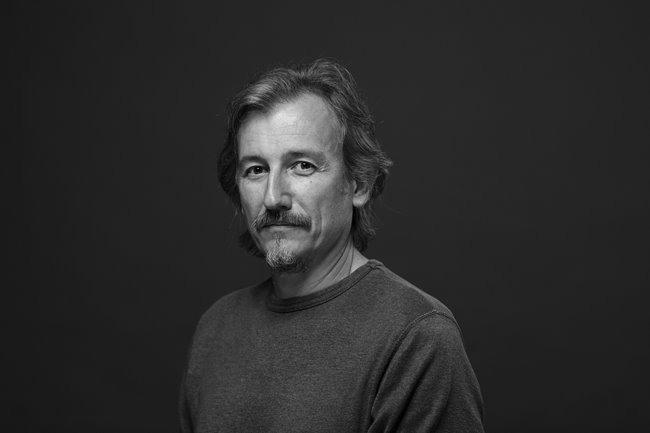Riwu Jumi Kanamari celebrates an evangelical service with his family and friends at his home in Atalaia do Norte, in the Vale do Javari region of the Brazilian Amazon. Increasing evangelism in the region has had a strong impact on the way of life and culture of the traditional populations. Indigenous people’s organizations raise concerns that these attempts to proselytize in their communities violate their constitutional right to maintain their cultural heritage and sacred practices, and threaten their safety. Missionary groups have been accused of spreading diseases among previously uncontacted groups, and of provoking social conflict by telling communities that their dances and beliefs are evil.
The Amazon rainforest, 60 percent of which lies in Brazil, is under great threat, as deforestation, mining, and exploitation of other resources gains momentum under environmentally regressive policies. Exploitation of the Amazon’s resources – such as minerals and metals including gold, as well as timber – alongside infrastructural development, such as clearance of land for large-scale farming, hydro-electric schemes and the construction of roads, has led to massive destruction of the natural environment. According to the independent Council for Foreign Relations, Brazil lost around a fifth of its forest cover in the fifty years before 2019. Since 2019, devastation of the Brazilian Amazon has been running at its fastest pace in a decade, according to data from the research institute Imazon.
In recent years, fires – often set during land clearance – have led to wildfires, exacerbated by sustained drought conditions brought on by global heating. Conservation regulation and enforcement have been eroded under Brazilian president Jair Bolsonaro’s administration. The president encourages farming and mining in protected areas, arguing this will combat poverty. In addition, large infrastructure schemes have been built. Bolsonaro frequently speaks out against environmental protection measures, and makes comments undermining Brazilian courts’ attempts to punish offenders. Environmentalists say that this is encouraging deforestation and creating a climate of impunity.
The rainforest serves several key environmental functions both regionally and globally – helping regulate the local weather and global climate. Currently, land conversion and deforestation in the Amazon release up to a billion metric tons of carbon per year, not including emissions from forest fires, according to a study reported in The Guardian. An area of extraordinary biodiversity, with some three million species of plants and animals, including endemic and endangered flora and fauna, the Amazon is also home to more than 350 different Indigenous groups, more than 60 of which still remain largely isolated. In addition to environmental threats, such as soil erosion following deforestation and pollution from gold mining, exploitation of the Amazon has a number of social impacts, particularly on Indigenous communities. The delicate codependence some Indigenous groups have with the forest has been disrupted, and clashes break out as land is forcibly seized. Workers flocking from other parts of Brazil for employment on infrastructure projects have led to an increase in violence in some areas, and a strain on resources in towns.

